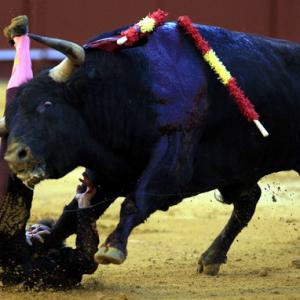 If an employee is not motivated, the business leader could be the one to blame.
If an employee is not motivated, the business leader could be the one to blame.
According to a new research by global management consultancy, Hay Group, global business leaders are over-reliant on a single leadership style, demotivating employees and holding back organisational performance as a result.
In India, it found 70 per cent of leaders created a demotivating climate for their employees. The world average was 55 per cent.
The research also showed two in every three Indian leaders (62 per cent) opt for a ‘coercive’ leadership style, compared to 37 per cent globally.
The research defines coercive leaders as those who tell staff what to do and expect them to do it.
They then check over employees’ shoulders and are more likely to criticise what they are getting wrong, rather than praise what they are doing right.
Mohinish Sinha, leadership and talent practice leader at Hay Group India, said, “While the ‘coercive’ leadership style works well in a crisis or during a period of significant change, its over use may lead to an erosion of innovation.”
The research showed that leaders in EMEA (Europe, the Middle East and Africa) are the least flexible, with only one in five (22 per cent) able to use the recommended four or more leadership styles.
Consequently, it said that almost three fifths (57 per cent) are creating demotivating climates.
“In addition, two-thirds (66 per cent) of Asian leaders create demotivating climates -- the worst of any global region -- where just one quarter (24 per cent) have mastered four or more leadership styles.
"A majority of Asian leaders (48 per cent) have been found to be using the ‘coercive’ style of leadership,” it said. North American leaders created the most positive working environments, the study showed, with fewer than half (49 per cent)
However, it added there was room for improvement.
The study said while good leadership was synonymous with flexibly tailoring the approach to suit the situation, one-third (36 per cent) of leaders have mastered none or only one leadership style, compared to a quarter (26 per cent) who are able to adopt a range of four or more styles.
This, it said, led to working environments across the world to suffer, with over half (55 per cent) of leaders creating demotivating climates. By contrast, just 19 per cent of leaders are fostering high-performance workplaces.
As the Euro zone crisis continues, the research showed that European leaders are falling back on a coercive style of leadership. Once a rarely used style in the region, this is now a dominant approach for over one-third (31 per cent) of leaders in the region, it said.
Ruth Malloy, global managing director of leadership and talent at Hay Group said, “A leader’s behaviour is the single biggest factor influencing what it is like to work in a team.
"Good leadership has the power to energise, engage and motivate staff to go the extra mile for their organisation.
Poor leadership will have the opposite effect, creating a demotivating atmosphere leading over time to high staff turnover and frequent absences.”
He added that at a time when organisations across the world are looking to boost performance and get the best from their people, it is worrying to discover that so few leaders are creating the climates their people need to flourish.
The study is based on an analysis of Hay Group’s Styles and Climate data, covering 95,000 leaders in over 2,200 organisations across the world.









